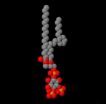(Press-News.org) A recent study in the Journal of General Physiology brings new insights to an area of ion channel regulation: whether voltage-gated potassium (Kv) channels can be regulated by physiological changes to PIP2.
Potassium channels, microscopic pores that allow potassium ions to cross cell membranes, are crucial to such diverse processes as conduction of the nerve impulse, regulation of the heartbeat, and the secretion of hormones such as insulin. PIP2, a minor phospholipid component of cell membranes, regulates the activity of various proteins in the cell membrane, and previous studies have indicated that it might be a very important regulator of such channels. To probe the cell signaling roles of PIP2 under physiological conditions, Bertil Hille (University of Washington) and colleagues used a set of sophisticated molecular tools to rapidly deplete PIP2 in the membranes of intact cells and simultaneously monitor the PIP2 changes that occurred. Using this approach, they confirmed previous studies showing that the activity of "inward rectifier" potassium channels was strongly dependent on PIP2. Surprisingly, however, they found that various members of the Kv channel family thought to be PIP2 sensitive on the basis of studies that analyzed their activity in isolated patches of cell membrane were, in fact, unaffected by PIP2 depletion. Thus, the group demonstrated that large PIP2 changes at the membranes of intact cells did not modulate the function of these Kv channels, contrary to expectations.
According to Donald Hilgemann (UT Southwestern Medical Center at Dallas) in commentary appearing in the September 2012 issue of JGP, the findings are an important step forward in our understanding of PIP2 effects on Kv channels. Furthermore, the tools employed by the Hille group can now be used to address questions about PIP2 functions in other cellular processes. In addition to its complex roles in cytoskeleton regulation and endocytosis, PIP2 appears to influence many cell membrane processes, including the formation of membrane domains, membrane budding, and membrane turnover.
INFORMATION:
About The Journal of General Physiology
Founded in 1918, The Journal of General Physiology (JGP) is published by The Rockefeller University Press. All editorial decisions on manuscripts submitted are made by active scientists. JGP content is posted to PubMed Central, where it is available to the public for free six months after publication. Authors retain copyright of their published works and third parties may reuse the content for non-commercial purposes under a creative commons license. For more information, please visit www.jgp.org.
Hilgemann, D.W., et al. 2012. J. Gen. Physiol. doi:10.1085/jgp.201210874.
Kruse, M., G.R.V. Hammond, and B. Hille. 2012. J. Gen. Physiol. doi:10.1085/jgp.201210806.
Fitting Kv potassium channels in the PIP2 puzzle
2012-08-27
ELSE PRESS RELEASES FROM THIS DATE:
Leg compressions may enhance stroke recovery
2012-08-27
AUGUSTA, Ga. – Successive, vigorous bouts of leg compressions following a stroke appear to trigger natural protective mechanisms that reduce damage, researchers report.
Compressing then releasing the leg for several five-minute intervals used in conjunction with the clot-buster tPA, essentially doubles efficacy, said Dr. David Hess, a stroke specialist who chairs the Medical College of Georgia Department of Neurology at Georgia Health Sciences University.
"This is potentially a very cheap, usable and safe – other than the temporary discomfort – therapy for stroke," ...
Renal denervation improves blood pressure and arterial stiffness
2012-08-27
Munich, Germany – August 27 2012: Renal denervation improves blood pressure and arterial stiffness in patients with therapy resistant hypertension, according to research presented at ESC Congress 2012 by Mr Klaas Franzen from the University Hospital of Schleswig-Holstein. The findings suggest that renal denervation regenerates blood vessels and could reduce cardiovascular events.
Malignant arterial hypertension was historically treated with surgical thoracolumbar splanchnicectomy, a type of sympathectomy treatment that was introduced in 1938. "A significant reduction ...
Breast milk promotes a different gut flora growth than infant formulas
2012-08-27
DURHAM, N.C. – The benefits of breast milk have long been appreciated, but now scientists at Duke University Medical Center have described a unique property that makes mother's milk better than infant formula in protecting infants from infections and illnesses.
The finding, published in the August issue of the journal Current Nutrition & Food Science, explains how breast milk, but not infant formula, fosters colonies of microbiotic flora in a newborn's intestinal tract that aid nutrient absorption and immune system development.
"This study is the first we know of that ...
Renal denervation achieves significant and sustained blood pressure reduction
2012-08-27
Munich, Germany – August 27 2012: Renal denervation leads to significant and sustained blood pressure reduction for up to 18 months in patients with treatment resistant hypertension, according to research presented at ESC Congress 2012. The new clinical data from the Symplicity HTN-2 randomized clinical trial were presented by principal investigator Dr Murray Esler at the scientific session, associate director of the Baker IDI Heart and Diabetes Institute of Melbourne, Australia and by Prof Böhm for the ESC Press Conference.
Treatment resistant hypertension is blood pressure ...
Renal sympathetic denervation improves physical and mental health in resistant hypertension
2012-08-27
Munich, Germany – August 26 2012: Renal sympathetic denervation improves anxiety, depression, quality of life and stress in patients with resistant hypertension, according to research presented at ESC Congress 2012 by Dr Denise Fischer from Saarland University Hospital.
Arterial hypertension is often associated with several psychological comorbidities, such as anxiety and panic disorders, leading to impaired quality of life. Catheter-based renal sympathetic denervation (RDN) is a novel treatment option for patients with resistant hypertension and has been shown to reduce ...
Renal denervation treats resistant hypertension in real world patient populations
2012-08-27
Munich, Germany – August 27 2012: Renal denervation successfully treats patients with resistant hypertension in real world patient populations, according to a study presented at ESC Congress 2012. The findings were presented by Dr Darren Mylotte from France.
Transcatheter renal denervation represents a novel therapy for treating patients with treatment resistant hypertension, a condition which greatly increases the risk of myocardial infarction and stroke.
"The Symplicity Hypertension I and II studies have suggested that this procedure significantly lowers blood pressure ...
Cancer vaccine Special Focus series published in Human Vaccines & Immunotherapeutics
2012-08-27
August 27, 2012 -- In one of the most comprehensive peer-reviewed discussions on cancer vaccines and immunotherapeutics, a Special Focus in the journal Human Vaccines & Immunotherapeutics provides a critical view on cancer vaccines and a discussion on best approaches for the future. From firsthand accounts of principal investigators involved in numerous failed cancer vaccine programs, including Oncophage® and MVAX®, to commentary from world experts in cancer vaccine development, authors in the Special Focus recount the mistakes of the past and provide an critical lens ...
Renal denervation gives better outcomes than drugs in advanced heart failure
2012-08-27
Munich, Germany – August 27 2012: Renal denervation leads to better outcomes than standard drug treatment in patients with advanced heart failure, according to research presented at ESC Congress 2012. The results of the Olomouc I pilot study were presented by Dr Miloš Táborský from the University Hospital Olomouc.
Renal denervation does not involve any pharmacological treatment. It is a multiple application of radiofrequency energy using a thin catheter via the femoral artery and a long-term "denervation" of the sympathetic nerves around the renal arteries. "This is done ...
Precise and persistent cell sabotage
2012-08-27
Some of the body's own genetic material, known as small interfering RNA (siRNA), can be packaged then unleashed as a precise and persistent technology to guide cell behavior, researchers at Case Western Reserve University report in the current issue of the journal, Acta Biomaterialia.
The research group, led by Eben Alsberg, associate professor in the departments of Biomedical Engineering and Orthopedic Surgery, have been pursuing experiments that seek to catalyze stem cells to grow into, for example, bone and cartilage cells, instead of fat, smooth muscle and other cell ...
Athletic field paint steals spotlight from the grass it covers
2012-08-27
Aug. 27, 2012 – Professional athletic field managers maintain trimmed turfgrass with great precision, carefully painting crisp lines and colorful logos on their grass before each game. While these fields appear to be in perfect health, some field managers have noted deteriorating turfgrass beneath repeated paint applications.
New research now suggests why. In a study that appears in the September-October issue of Crop Science, three North Carolina State University researchers found that grasses coated with latex paints show a notable reduction in photosynthesis.
In ...

